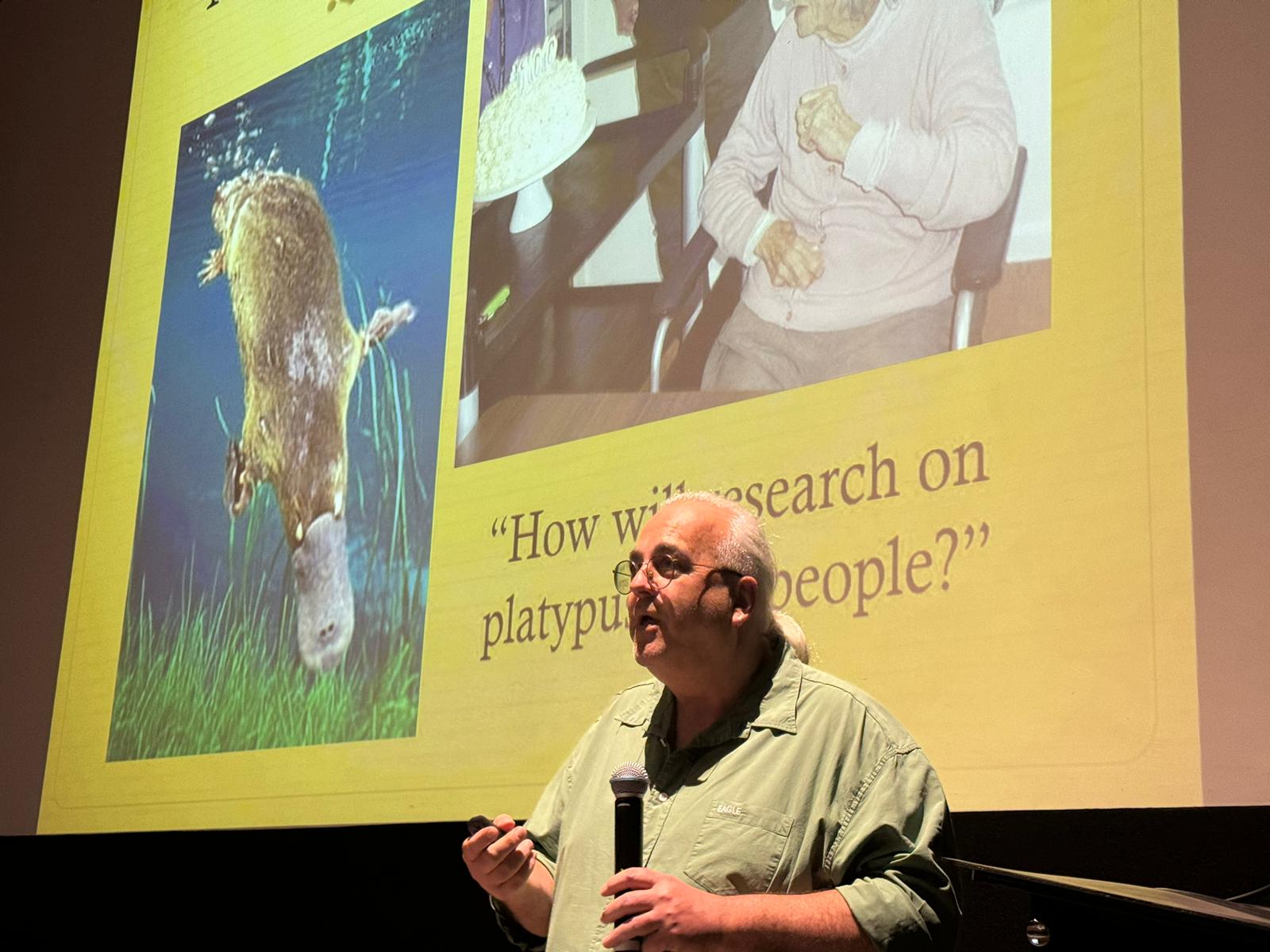The Santos Dumont Institute (ISD) received, this Tuesday (27), the visit of the renowned researcher from South Africa, Paul Manger. During his visit, Manger visited the laboratories and facilities of the Edmond and Lily Safra International Institute of Neuroscience (IIN-ELS), in Macaíba and, then, gave a lecture to students of the Master's degree in Neuroengineering, ISD researchers and the external public.
The lecture was titled “What is the use of comparative brain research?” (What is the use of comparative brain research?). For about an hour, the researcher discussed his professional career and presented results of research carried out with different animal models, seeking to understand how evolution shapes the different shapes of brains among different species.
Born in Australia, Paul Manger is a professor in the School of Anatomical Sciences at the University of the Witwatersrand in Johannesburg, South Africa. He is one of the world's leading experts in the study of the evolution of brain shapes across multiple phylogenetic lineages. He has studied brains from more than 150 species, building the first large mammalian brain bank in the southern hemisphere.
Event moderator, ISD researcher Felipe Fiuza, believes that the lecture offered valuable contributions to the understanding of the diverse structures and functions of animal brains, especially by highlighting how these studies can generate significant advances in both scientific knowledge and practical applications.
“Professor Paul Manger demonstrated how comparative neuroscience not only enriches our understanding of brain evolution, but also provides concrete solutions for improving quality of life and conserving biodiversity. The lecture was a testament to the transformative potential of comparative neuroscience in advancing both human and animal health, and highlighted the continued need for interdisciplinary research in this area of knowledge,” said Fiuza.
Manger also discussed the identification of sleep patterns in different species and how climate change, such as changes in temperature and humidity, can impact these patterns. After the talk, ISD Neuroengineering master's student Wellydo Kesllowd noted that “considering global warming, changes in these parameters can lead to disturbances in the sleep-wake cycle in several mammals, which highlights the need for strategies to mitigate these effects in the modern world.”
IIN-ELS Manager Edgard Morya expressed his gratitude for the researcher’s visit and celebrated the enriching sharing of scientific knowledge. Morya highlighted the importance of such exchanges to strengthen research and promote advances in neuroscience, emphasizing the Institute’s continued commitment to collaboration and innovation in solutions to global challenges.
ABOUT ISD
The Santos Dumont Institute is a Social Organization linked to the Ministry of Education (MEC) and includes the Edmond and Lily Safra International Neuroscience Institute and the Anita Garibaldi Health Education and Research Center, both in Macaíba. ISD's mission is to promote education for life, forming citizens through integrated teaching, research and extension actions, in addition to contributing to a fairer and more humane transformation of Brazilian social reality.













